Ep20: Empathy for the "Enemy"
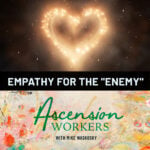
Ascension Workers
Ep20: Empathy for the "Enemy"
/
RSS Feed
In this episode of Ascension Workers, Mike reflects on the world’s current divisions, focusing on topics of religion, politics, and truth-seeking communities. He explores the concepts of polarization and empathy, discussing how to maintain open-heartedness amidst differing beliefs. Drawing on spiritual teachings, including the “Law of One” and Ram Dass’s “Miracle of Love,” the episode emphasizes understanding and compassion as paths to unity, while acknowledging the challenges of engaging with diverse perspectives.
Next Episode: Ep21: Attachments & Karma
WEBVTT
Welcome to another episode of Ascension Workers.
I thought for this episode, I would do something a little
different and just share a little bit of my thoughts
of what's going on in the world and what's going on
in my processing of
what the world seems to be processing right now.
This seems to be a very strange time with, uh, the election
that just occurred, where people seem to be much more
divided in ways that seem almost more
emotional than logical.
And it seems that there's, there's almost like a, a, a sense
of people falling off a cliff w with,
with within people's own hearts.
You know, th there there's people who they used to love,
they feel like they can't love them if they
feel like they voted for the other person.
And it's, it's, you know, I don't think it's an exaggeration
to say, to say that because of the intensity of what,
what I've seen shared just from friends that I know as,
and it's, it's almost as though I, I can't even openly talk
to those friends anymore if they, um,
are too strongly emotional about these things.
And I've been processing this in the context
of empathy a little bit, and how much,
how much can I really empathize with people
who are believing lies?
And I wonder if I should probably just do this processing
out loud with, with you guys, and you can share comments
and we could have this discussion.
And, um, I didn't,
I know this would be a great one to have with other people.
And I, I thought I would start out with, uh,
just sharing some thoughts.
Um, but I,
I think I've been processing this on
three different categories, really.
It seems like, well, first of all, the law of one books say
that we're entering a time where there'll be increased
polarization of individuals
and polarization of social complexes.
And of course, the word polarization often means
in the context of individuals.
It means that people are polarizing more towards a desire
to be of service to self, or
desire to be of service to others.
And the desire to be of service
to self can manifest in forms of control and manipulation.
And the desire to be of service
to others will manifest in forms of acceptance of others
and essentially release of, of those feelings of separation.
Um, so in, in a sense, the,
the polarity does not matter as much to one polarity
because the the need to manipulate is not there.
And the desire to love, regardless of
what other people are thinking
or believing is, is very strong.
Um, so ultimately, when I, when I'm saying polarization
of social complexes, I'm saying
that this is really an ambiguous concept of,
of all the ways in which we can be divided,
which don't necessarily relate to how
separate we are on a core level,
but they seem to relate how separate we are when we talk
about certain things or attach ourself to certain things.
Uh, and there's three different categories of attachments
that I want to address today.
Um, the first one being religious attachments
and Christianity specifically seems to be the strongest
way in which people are polarizing in this country.
And the second area is obviously political.
And I'm gonna discuss the ways in which it seems
that there's, uh,
a seemingly insurmountable political divide between people.
Um, and I'll discuss this in terms of, you know,
recognizing the projection of self
that we're seeing in others, and finding the gratitude
and the love that allows us to, um, blend our energies
and be of service to others regardless of what
lies people are believing
or what facts people believe are facts.
And, and the third area would be the,
the conspiracy community in general.
The truth, truth seeking community,
where you have people very divided over who's trustworthy,
what can be believed, and very little evidence in that area
as well, when people are just using their words
to make, make claims.
And the words are what have, what have us divided
where we're we find ourselves capable of feeling
that there is a so-called enemy in, in someone if their,
if their words are not something that we trust.
Um, and so I thought maybe a good point
to start this conversation would be, um,
what a book I love called Miracle
of Love by Ramdas.
This was the original edition.
There's, uh, there's a newer edition.
Uh, it may have some things that were controversial,
not included, so just to note on that.
Um, but on page 3 53 of this book,
Ramdas is talking about the stories around Maharaji
and, uh, Christ.
And Maharaji was Ramdas's guru who seemed to have, uh,
you know, paranormal abilities he could do,
or at least he was aligned with the crater such
that he could, um, facilitate the experience of
miraculous happenings, miracles of healing.
And these things did not come through maharaji.
They, they came from the creator.
Um, but, but, um, this person seemed to be able
to have a deep insight into anything,
um, in the future, in the past.
He could just see and know all sorts of things.
And this page 3 53 said, Maharaji's love
of Christ was unearthly when he was asked who was Christ?
Maharaji answered. And then there's some examples
of quotes here that Maharaji said about Christ.
He was one with all beings,
and he had great love for all in the world.
He was one with God.
Another quote was,
you must accept the teachings of Christ and follow them.
Christ said to be like a little child, never think
or speak anything that could harm anyone.
Be like a little child. Never think
or speak anything that could harm anyone.
Another quote here is, no one believes in Christ,
but I do, which is interesting in the context of, uh,
Christians often talking about belief in Christ
as being this foundational thing.
What does it, what does it really mean?
And of course, this is, he's usually speaking in Hindi,
and it's translated, um, maybe even translated retranslated
by MDOs into a different
word than this is a summary from rom dos, really.
Um, but another quote here, this maybe translated, is
he was crucified so that his spirit
could spread throughout the world.
He sacrificed his body for the dharma. He never died.
He never died. He is ottman,
which means the soul living in the hearts of all.
So, so these are some quotes from Maharaji that suggested
that there was a appreciation for something
of an identity in this, in Christ
that was living in the hearts of all.
And this seems to be, you know, connected
to the Christian concept of inviting Christ into your heart.
But this, this is another way of looking at it,
that Christ is living in the hearts of all.
And, um,
and you, if, if you can I associate, um, an identity
with love itself, then you can recognize that there is
an opportunity for us to loosen our attachments
to separated identity by at least allowing the possibility
that we are in all and all is in us.
And the teachings
of Christ could certainly transcended anyone who tries
to talk about it, certainly transcended the,
the writings in the Bible because of how hard it is to get
to this core truth of the love
and our hearts being the,
the core identity which unifies us
all that we're all coming from.
This also is a great, um, reminder of the, the nature
of the logos, describing the law of one.
They actually said the word logos can mean love.
It can be a synonym for love.
And, and if, if, if you take the idea of John chapter one,
that Christ is love incarnate, that
that logos became flesh, then, then you appreciate the idea
that there is in all of us.
There is, there is love seeking to become known, seeking
to become expressed through these bodies, through these,
through these actions and behaviors, through to some degree.
It's, it's blocked, it's shielded.
If we take up beliefs of separate identity, if we
remove the belief in that which is Christ,
and take up the belief
and that which is separation, we can slow down the, the flow
of appreciation, of love, of recognition of love.
But ultimately, I think this, this core teaching relates
to the idea that we are, we're one in love
and we're one in the ability to, um, find
that love within our hearts and, and see ourselves in others
and see that all is just a projection of, of a distortion
or a belief that, that there is something other than
that love, which is, which could be residing in this,
a darkness, a kind of spiritual darkness.
And you know, in the, in the, in the physical world,
we're seeing, we're seeing people, you know,
seemingly enslaving one another,
seemingly fighting with one another.
And this is just another way of sort of hiding
and masking the, the true love that was, which was the root
of these, um, bodies, these distortions of incarnation,
which are essentially, you, you could say
that these are all distortions of the Christ consciousness.
They're all distortions or, um, filters
that are blocking the, the,
the clearest perceptions of that love.
Um, another, a story here that was told about Christ, uh,
Maharaji was asked, uh, why was Christ so maligned?
Maharaji was asked, and it says, it is
so Maharaji responded, it is so with all saints,
but they see only love in everyone.
You should not speak, hear or see evil.
You should see love everywhere
and in everyone see the good in all.
And, uh, maybe a different concept of
you should not speak here
or see evil that most people are recognizing.
Um, when, when we, when we see evil in others,
it's essentially like we're, we're missing the truth.
We've, we've blinded ourselves from, from the deeper love
that that is, that is the source of that expression.
And of course, you could go into the Lavon philosophy
and talk about how all these, um, catalysts of seeing
something other than love are essentially, uh,
teaching mechanisms to help us balance
that which in ourselves was still capable of a lack
of forgiveness, a lack of appreciation
of the infinite creator, a lack of seeing God
or choosing to see God or the sacramental nature
of this experience, allowing us to see God.
Um, but,
but ultimately, when we, when we speak here
and see evil, it's, it's an indication that we can,
we can choose to see in another way.
And so this is why I wanted to title this conversation,
the empathy, empathy for the quote enemy.
And the, the idea of the enemy is also kind
of paradoxical when you think about Christ in the Bible
saying to, um, pray for your enemies, love your enemies,
pray for those who persecute you.
And it's almost like you can't possibly
have an enemy if you are trying to empathize completely such
that you look for in your mind's eye, you look
for the path forward for them to step more into love
and be more like a, a brother
or sister, be more like family.
Once, once you're in that state of consciousness
where you're seeing this person truly in, in love,
how could they possibly be your enemy at that point?
And that's why I think it's a paradox to say, you know,
praying for your enemies.
Um, because ultimately when you're in that solid, um,
sincere state of prayer, then you really have not, um,
allowed room for feelings of separation.
You're, you're wanting to open your heart
to actually genuinely be of, be of service through that.
Um, so with that said, um, I could touch briefly on the,
the religious divides that occur
because fundamentalism is,
is really an issue in this country
because it, it is, it is the belief that
because Christ was pure and
because, uh, uh, we, we are, people are capable of saying,
I align with Christ, he is my rock.
You could say these things and then you could turn around
and be nothing like Christ.
And this is what people are perceiving as fundamentalism,
um, to a large degree.
And they don't, they don't feel love from these
people, uh, very often.
And it's, it's obviously the lack of Christ in,
in Christians, that is the source of why Christianity has,
has been a source of great division for, for our culture.
And of course, to some degree that plays off on the,
the political spectrum where one, you know,
one political party may more strongly, um, say that a,
a issue like abortion has to be tied to both the,
the righteous judgment aspects of Christianity.
And the, um, you know, on the other side, there's this
really, it's, it's almost like there's a feeling that
with the abortion issue, there has to be, um,
a feeling like anything that would control a woman.
And what she does is enslavement is a total lack of love.
Um, but then, but then we have all these gray areas
where you talk about something like, um,
if you see a woman taking drugs, drinking alcohol,
who's pregnant, you know, do you have any, um, concern
for, for what's happening?
Then at what point does the woman, um, harm the baby?
Um, and, and that, does that cause empathy more
for the baby than for the woman who is,
who's causing harm to the baby?
Um, so abortion is like,
it's almost like a spring loaded sort of, uh, very,
very mutually exclusive philosophy sort of divisiveness
that, that we're all having to process as state by state now
because of the Supreme Court issue.
So we have a lot of people in this country
who vote strictly based on the issue of abortion.
I've met many of these people who it doesn't matter what any
of the other views are of a candidate,
it doesn't matter if they're the most closed hearted
person, it won't matter.
It only matters. The the idea that we're not killing babies
is one way of looking at it.
And on the flip side, the idea of oppressing
and being intolerant is, is
the way in which this can be viewed.
So ultimately what I'm trying to talk about here is finding,
finding the path of empathy when there are just extremely
intense emotions
that make the other person seem evil in some way.
And there was a really great, uh, article I saw, um, posted
by, uh, a friend who is, I,
I could just share this friend is on the,
on the left side of, of the spectrum.
And I appreciate that Facebook, uh, may be still showing me,
uh, diverse viewpoints from, from my friends,
not keeping me in as much of a bubble.
And, uh, the, the article was, the Wikipedia article
is called The Paradox of Tolerance,
which is a philosophical concept suggesting that if society,
if society extends tolerance to those who are intolerant,
it risks enabling the eventual dominance of intolerance,
thereby undermining the very principle of tolerance.
So the idea here is if you're so loving to people who are,
um, basically trying to control
and manipulate, then you, you enable
that control and manipulation.
Um, this is the balance between love
and wisdom, of course, that the loved one books talks about
that love is very, very useful.
And certainly as a parent now, I appreciate
that love is very useful up until a point
with, with my child.
And there's a point at which the,
a bias is forming in the child towards being selfish,
being a very of service to others,
and not understanding that there are,
that there's a better way to do things.
And so I love the child up until the, the line
that I feel is reached, if this is very hard to know
where this line is in cases,
but I can be unconditionally loving and accepting
and just completely tolerant of everything up until I feel
that there is some long-term damage that could occur if I'm
enabling a, a behavior which is, um, I guess intolerant
of others, uh, very non-empathetic, empathic.
Of course, you can't force empathy on a person.
This is kind of the whole problem of government is
that we have a system where,
where ultimately we're saying the laws are forcing people
to do things or not do things.
And so essentially what this is a system of control at,
at its inception, as much as the founding fathers tried
to put safeguards to preserve freedoms,
the the fundamental aspects of government that,
that people both need
and are injured
by are those which are enforcing things which don't have the
compassion or empathy for every individual case.
You can have somebody, um, well, this is also why, you know,
why we have jurors, and there's some,
there's a principle called jury nullification, uh,
where a juror actually is, is entitled to the ability
to reinterpret any law
and decide what the law,
how the law should apply or not apply.
If they feel that a law is unjust or should not exist.
Uh, a juror in, in the United States can actually say,
I completely disagree with that law,
that law should have never existed.
And they can, they can handle their decision
with the other jurors, and they can even convince other
jurors, you guys know, we have freedom
to say that this is not fair.
This law was not fair. And in this particular case,
we can say we wanna have empathy for this person
who was tried unjustly, um, in our concept of justice.
Um, and this is why the jury
of the appears is more appropriate than the, the jury
of the federal government, which has tried to, to control
or manipulate according to whatever ends, the people
who have sought so much power that they gain those positions
to make those laws, make those decisions,
influence the politicians to make those laws and decisions.
This is why it's, it's very a, a, a delicate balance
between, um, you know, the, the, the protections
that we have, um, and,
and the tendency of people to wanna control and manipulate.
Um, but ultimately this concept
of tolerance is just the surface level
that we're talking about with
how you could think about a law
and think about how you could help people.
But ultimately, the, the core issue here is,
is the individuals
who are in these positions, can they have empathy?
Can they actually open their hearts or,
or will they continue the trends of, of, uh, being
without concern for the welfare of others?
Um, and it's actually very, very hard when you're in working
for the federal government to have a, a real sense of
how people are being affected by, by laws.
Um, and so it's,
it's very messy, and I don't have the answers.
Um, but,
but the, you know, the, the, the appearance
of empathy is not the same as empathy.
And so there, there's a point at which we have to recognize
that people will be believing completely separately
from the way we believe,
and there will be the lies that are very convincing,
and the lies will be very convincing on every side of,
of any, you know, well-structured political campaign.
And, and,
and the que the question I have for everyone is,
is can you truly empathize
with someone if their beliefs don't
make any sense at all to you?
Um, thank you guys for joining.
If you wanna share any comments, also, you can, you can chat
and I'll, I'll repeat what you say.
Um, and, um, I guess the,
another area here, um, I wanted to touch on,
um, well, this is also very fascinating.
We, you know, we could end up in any kind of place
as a country, it's so hard to know where things are headed.
Um, but ultimately I think the, our ability to
remain open-hearted towards people
who have completely opposite views is actually gonna be the,
the deciding factor in the, the, the outcome of
how all the transformations in government that could occur
will actually result in changes that are helpful or harmful.
And I sure hope we don't go to civil war as a country,
but it seems that there's, um, you know, some people I,
I've seen on Facebook even talking about wanting
to leave the country because they're just so assuming
that what's going to happen in the near future is gonna be
essentially, you know, the, the absolute opposite of love,
the, the absolute evil
and tyranny that they've been fearing.
And, um, I don't know the, the answer to this, uh,
other than we, we can just continue to try to try
to shine the lights in our own lives
and be as, as the law of one says, we, we are operating
with a, a candle, a tiny candle in darkness.
Trying to correct imbalances is one of the ways
that they talk about manifestation into the
physical reality.
All we have is a little light in front of ourselves,
and this whole big masterpiece of, of, uh,
earthly expression of confusion and distortions.
This, this chaos that we're in is actually a part of a,
a much bigger divine plan that we can't,
we can't just immediately resolve,
but every one of us has a part to play in resolving
and healing the distortions, which are ancient, very ancient
and cyclical.
Um, but as we approach the ending of the cycle, you know,
increasingly we will have these polarizations
and opportunities to, to correct them
through the intensification of the
light that we're, that we're in.
But we each have our own, uh, space, our own,
our own ability to, to be of service.
Um, Valerie says, I believe Christ is in all,
but I believe there is not always remembrance
or awareness of the Christ within.
And people act, act out when they
don't see the light in themselves.
I try to see the divine in people
without enabling bad behavior.
It is tricky with politics and religion
because everyone thinks they are right
and the other person is wrong, maintain the belief
and the light and in the other,
and trust in that they are acting in the,
in the way they think is right.
Yeah, I agree with that completely. Yep.
Um, it's, it's the, it's the need to be right.
That sometimes conflicts with the open-heartedness.
And, uh,
and this is why, you know, empathizing with someone is a way
to start using the mind a little bit in a way
that can see the path forward for others without, um,
without fighting them on what we think is wrong.
We see where they're at. If we, we try
to put ourselves in their shoes,
even though we might not understand all the things that led
to their belief systems, we can at least make an effort, um,
to, to learn about why they believe what they believe.
And from that standpoint, if there is a path forward to, to
what we would see as less darkness, more light, more love,
then hopefully with, with, with enough empathy,
we can get ourselves into a position
to be of service to that person.
But if we can't see any way to be of service to
that person such that they can appreciate our love for them,
then we might have to take a step back
and, you know, find another, uh, find
where we're being called to address, um,
where a request has been brought forward as opposed to
where there is no request for service, which
that's another quote from the loved one,
is there's really no way to offer service
where no service has been requested.
Um, and the other area here is the, um, the,
the truth seeking communities.
And it's very fascinating being in this position where
good has now become a very divisive figure.
And, you know, I, I can, I feel like I can find empathy
for everyone in these situations
where there's clearly no easy way for people
to know what the truth is.
And it's very funny that people are claiming that, uh,
you know, if Corey contradicted himself in his testimony,
that is the reason that we can't trust him,
or the reason that we, we now, we now know the truth,
but ultimately the, the truth is so, so hard to see.
Uh, and I know I've had one my own paranormal experiences
including, you know, blue Avian dream.
And it seems to be that there's these, there's these
nudges from the universe from every different direction
to maintain what the law of one described, as one
of the main purposes of the Efo phenomenon.
And the way in which it's been interacting us, interacting
with us from the positive side at least, which has been
to maintain the state of mystery that allows us to begin
to have a fuller comprehension of the truer nature
of infinite potential.
The, the intelligent infinity within us is, is the thing
that they can awaken.
When we stop putting ourselves in a box
that we know is our is, is is the entirety of the truth.
When we limit what, what is true, we, we, we, we put a wall
against our appreciation of the infinite potentials
of every aspect of ourselves.
And this is a, this is a, a discussion that's,
that's somewhat esoteric, um,
but the, you know, the transformation of the spirit and the,
and the law of one is described as being a transformation of
that which is material to that which is
infinite and eternal spirit.
And in a sense, all of our reality is essentially, um,
an outward projection of the inward infinite source,
which is also our, our ultimate identity.
And so simply perceiving more in terms of that which is
eternal, that which is without finiteness, without
temporalness such as love and forgiveness and peace
and joy, when we can, we can bring those,
those higher spiritual aspects in, we're actually
rewriting the physical illusion, even though we don't,
we don't see it because we're used to taking in terms
of the universe's billiard balls
that are bouncing off of one another.
You know, the, the laws a manifestation are,
have always been causing everything that we see,
especially when we have encounters with people who are
seemingly very different from us, who are able to trigger us
and cause us to think, why can't they
just recognize the facts?
Why can't they recognize the truth?
This has always been a projection for us to see
that there's a part of ourselves
where we wanted to feel separate.
We wanted to feel that there was something else.
And this has obviously been magnified when we have specific
examples of different beliefs
and different belief systems that
that many people are aligning with, especially amplifies,
because there can be a whole almost worldview created
around, uh, some, somebody like Corey
or something like the law of one
or something like Christ and, and the Bible.
There could be completely different systems that
that can now be the polarities that we can see
and feel are needing to be, um,
brought to a greater truth if we see ourselves
without the opposite side.
But ultimately, all these are, are separate sides
of the same fractal, which is the, the, the desire to,
to have an expression of, uh, appreciation of distortion
and appreciation of the creator
expressed in unlimited forms.
And, but the infinite, the infinite potential
of expressiveness is the, the truer identity that allows us
to reshape our reality when we, um, break through all the,
the blockages of each of the ways of looking at things,
all each of the perceptions which are less than the
sacramental perceptions, the, the perceptions
of the heavenly and divine
and faith-based aspects of our being, which is really
to a discussion of the energy centers
and the chakras and the law of one.
I won't get into that now,
but, um, I guess this, this was some
of the main stuff I wanted to share today.
Um, I, I did wanna keep,
I don't, I do wanna keep this short.
Um, I hope you guys enjoyed that.
Um, I think there's many ways that we can
continue this discussion and I probably have other people
on, uh, because this is a very unusual time, as I said
before, where it seems like the divides are so great
that they're almost unsolvable
and people just simply can't even imagine talking
to their friends and family who they used
to think were their close friends and family, um,
because they, they fell off into different philosophy.
But the philosophy seems to be just this mirror
that we're using to see ourselves in every different way.
And so ultimately the ability to empathize, I think is key.
And you know, the, one
of the things the course miracle says is that
to empathize does not mean to share and suffering.
That is what we must refuse to do.
We refuse to share
and in suffering when somebody else is suffering in
what we perceive as a state of darkness.
Empathy does not mean take ourselves into feelings
of separation
and darkness to, to go
where they are exactly in their consciousness.
It means to put yourself in their shoes
and see what action is most needed.
And if we have a slightly higher vantage point of light,
and we are, we're seeing someone who is in a kind
of darkness and unable to see that there is hope,
that there is opportunities for growth
and progress, that there are lessons that are being learned.
If someone is incapable of perceiving that a lesson is there
to be learned, then empathizing with them allows us to see
why weren't they able
to see the lesson that was to be learned?
And is there anywhere that we can
amplify the opportunities for them to perceive
what is a lesson to be learned?
And there might just be a slight catalyst that we can offer
to be just of slightly more service to those
who are struggling to, to find the light
of the love of Christ.
So thank you guys for listening,
and now I'll open this up to attendees
and hope you join me on the next one.
Welcome to another episode of Ascension Workers.
I thought for this episode, I would do something a little
different and just share a little bit of my thoughts
of what's going on in the world and what's going on
in my processing of
what the world seems to be processing right now.
This seems to be a very strange time with, uh, the election
that just occurred, where people seem to be much more
divided in ways that seem almost more
emotional than logical.
And it seems that there's, there's almost like a, a, a sense
of people falling off a cliff w with,
with within people's own hearts.
You know, th there there's people who they used to love,
they feel like they can't love them if they
feel like they voted for the other person.
And it's, it's, you know, I don't think it's an exaggeration
to say, to say that because of the intensity of what,
what I've seen shared just from friends that I know as,
and it's, it's almost as though I, I can't even openly talk
to those friends anymore if they, um,
are too strongly emotional about these things.
And I've been processing this in the context
of empathy a little bit, and how much,
how much can I really empathize with people
who are believing lies?
And I wonder if I should probably just do this processing
out loud with, with you guys, and you can share comments
and we could have this discussion.
And, um, I didn't,
I know this would be a great one to have with other people.
And I, I thought I would start out with, uh,
just sharing some thoughts.
Um, but I,
I think I've been processing this on
three different categories, really.
It seems like, well, first of all, the law of one books say
that we're entering a time where there'll be increased
polarization of individuals
and polarization of social complexes.
And of course, the word polarization often means
in the context of individuals.
It means that people are polarizing more towards a desire
to be of service to self, or
desire to be of service to others.
And the desire to be of service
to self can manifest in forms of control and manipulation.
And the desire to be of service
to others will manifest in forms of acceptance of others
and essentially release of, of those feelings of separation.
Um, so in, in a sense, the,
the polarity does not matter as much to one polarity
because the the need to manipulate is not there.
And the desire to love, regardless of
what other people are thinking
or believing is, is very strong.
Um, so ultimately, when I, when I'm saying polarization
of social complexes, I'm saying
that this is really an ambiguous concept of,
of all the ways in which we can be divided,
which don't necessarily relate to how
separate we are on a core level,
but they seem to relate how separate we are when we talk
about certain things or attach ourself to certain things.
Uh, and there's three different categories of attachments
that I want to address today.
Um, the first one being religious attachments
and Christianity specifically seems to be the strongest
way in which people are polarizing in this country.
And the second area is obviously political.
And I'm gonna discuss the ways in which it seems
that there's, uh,
a seemingly insurmountable political divide between people.
Um, and I'll discuss this in terms of, you know,
recognizing the projection of self
that we're seeing in others, and finding the gratitude
and the love that allows us to, um, blend our energies
and be of service to others regardless of what
lies people are believing
or what facts people believe are facts.
And, and the third area would be the,
the conspiracy community in general.
The truth, truth seeking community,
where you have people very divided over who's trustworthy,
what can be believed, and very little evidence in that area
as well, when people are just using their words
to make, make claims.
And the words are what have, what have us divided
where we're we find ourselves capable of feeling
that there is a so-called enemy in, in someone if their,
if their words are not something that we trust.
Um, and so I thought maybe a good point
to start this conversation would be, um,
what a book I love called Miracle
of Love by Ramdas.
This was the original edition.
There's, uh, there's a newer edition.
Uh, it may have some things that were controversial,
not included, so just to note on that.
Um, but on page 3 53 of this book,
Ramdas is talking about the stories around Maharaji
and, uh, Christ.
And Maharaji was Ramdas's guru who seemed to have, uh,
you know, paranormal abilities he could do,
or at least he was aligned with the crater such
that he could, um, facilitate the experience of
miraculous happenings, miracles of healing.
And these things did not come through maharaji.
They, they came from the creator.
Um, but, but, um, this person seemed to be able
to have a deep insight into anything,
um, in the future, in the past.
He could just see and know all sorts of things.
And this page 3 53 said, Maharaji's love
of Christ was unearthly when he was asked who was Christ?
Maharaji answered. And then there's some examples
of quotes here that Maharaji said about Christ.
He was one with all beings,
and he had great love for all in the world.
He was one with God.
Another quote was,
you must accept the teachings of Christ and follow them.
Christ said to be like a little child, never think
or speak anything that could harm anyone.
Be like a little child. Never think
or speak anything that could harm anyone.
Another quote here is, no one believes in Christ,
but I do, which is interesting in the context of, uh,
Christians often talking about belief in Christ
as being this foundational thing.
What does it, what does it really mean?
And of course, this is, he's usually speaking in Hindi,
and it's translated, um, maybe even translated retranslated
by MDOs into a different
word than this is a summary from rom dos, really.
Um, but another quote here, this maybe translated, is
he was crucified so that his spirit
could spread throughout the world.
He sacrificed his body for the dharma. He never died.
He never died. He is ottman,
which means the soul living in the hearts of all.
So, so these are some quotes from Maharaji that suggested
that there was a appreciation for something
of an identity in this, in Christ
that was living in the hearts of all.
And this seems to be, you know, connected
to the Christian concept of inviting Christ into your heart.
But this, this is another way of looking at it,
that Christ is living in the hearts of all.
And, um,
and you, if, if you can I associate, um, an identity
with love itself, then you can recognize that there is
an opportunity for us to loosen our attachments
to separated identity by at least allowing the possibility
that we are in all and all is in us.
And the teachings
of Christ could certainly transcended anyone who tries
to talk about it, certainly transcended the,
the writings in the Bible because of how hard it is to get
to this core truth of the love
and our hearts being the,
the core identity which unifies us
all that we're all coming from.
This also is a great, um, reminder of the, the nature
of the logos, describing the law of one.
They actually said the word logos can mean love.
It can be a synonym for love.
And, and if, if, if you take the idea of John chapter one,
that Christ is love incarnate, that
that logos became flesh, then, then you appreciate the idea
that there is in all of us.
There is, there is love seeking to become known, seeking
to become expressed through these bodies, through these,
through these actions and behaviors, through to some degree.
It's, it's blocked, it's shielded.
If we take up beliefs of separate identity, if we
remove the belief in that which is Christ,
and take up the belief
and that which is separation, we can slow down the, the flow
of appreciation, of love, of recognition of love.
But ultimately, I think this, this core teaching relates
to the idea that we are, we're one in love
and we're one in the ability to, um, find
that love within our hearts and, and see ourselves in others
and see that all is just a projection of, of a distortion
or a belief that, that there is something other than
that love, which is, which could be residing in this,
a darkness, a kind of spiritual darkness.
And you know, in the, in the, in the physical world,
we're seeing, we're seeing people, you know,
seemingly enslaving one another,
seemingly fighting with one another.
And this is just another way of sort of hiding
and masking the, the true love that was, which was the root
of these, um, bodies, these distortions of incarnation,
which are essentially, you, you could say
that these are all distortions of the Christ consciousness.
They're all distortions or, um, filters
that are blocking the, the,
the clearest perceptions of that love.
Um, another, a story here that was told about Christ, uh,
Maharaji was asked, uh, why was Christ so maligned?
Maharaji was asked, and it says, it is
so Maharaji responded, it is so with all saints,
but they see only love in everyone.
You should not speak, hear or see evil.
You should see love everywhere
and in everyone see the good in all.
And, uh, maybe a different concept of
you should not speak here
or see evil that most people are recognizing.
Um, when, when we, when we see evil in others,
it's essentially like we're, we're missing the truth.
We've, we've blinded ourselves from, from the deeper love
that that is, that is the source of that expression.
And of course, you could go into the Lavon philosophy
and talk about how all these, um, catalysts of seeing
something other than love are essentially, uh,
teaching mechanisms to help us balance
that which in ourselves was still capable of a lack
of forgiveness, a lack of appreciation
of the infinite creator, a lack of seeing God
or choosing to see God or the sacramental nature
of this experience, allowing us to see God.
Um, but,
but ultimately, when we, when we speak here
and see evil, it's, it's an indication that we can,
we can choose to see in another way.
And so this is why I wanted to title this conversation,
the empathy, empathy for the quote enemy.
And the, the idea of the enemy is also kind
of paradoxical when you think about Christ in the Bible
saying to, um, pray for your enemies, love your enemies,
pray for those who persecute you.
And it's almost like you can't possibly
have an enemy if you are trying to empathize completely such
that you look for in your mind's eye, you look
for the path forward for them to step more into love
and be more like a, a brother
or sister, be more like family.
Once, once you're in that state of consciousness
where you're seeing this person truly in, in love,
how could they possibly be your enemy at that point?
And that's why I think it's a paradox to say, you know,
praying for your enemies.
Um, because ultimately when you're in that solid, um,
sincere state of prayer, then you really have not, um,
allowed room for feelings of separation.
You're, you're wanting to open your heart
to actually genuinely be of, be of service through that.
Um, so with that said, um, I could touch briefly on the,
the religious divides that occur
because fundamentalism is,
is really an issue in this country
because it, it is, it is the belief that
because Christ was pure and
because, uh, uh, we, we are, people are capable of saying,
I align with Christ, he is my rock.
You could say these things and then you could turn around
and be nothing like Christ.
And this is what people are perceiving as fundamentalism,
um, to a large degree.
And they don't, they don't feel love from these
people, uh, very often.
And it's, it's obviously the lack of Christ in,
in Christians, that is the source of why Christianity has,
has been a source of great division for, for our culture.
And of course, to some degree that plays off on the,
the political spectrum where one, you know,
one political party may more strongly, um, say that a,
a issue like abortion has to be tied to both the,
the righteous judgment aspects of Christianity.
And the, um, you know, on the other side, there's this
really, it's, it's almost like there's a feeling that
with the abortion issue, there has to be, um,
a feeling like anything that would control a woman.
And what she does is enslavement is a total lack of love.
Um, but then, but then we have all these gray areas
where you talk about something like, um,
if you see a woman taking drugs, drinking alcohol,
who's pregnant, you know, do you have any, um, concern
for, for what's happening?
Then at what point does the woman, um, harm the baby?
Um, and, and that, does that cause empathy more
for the baby than for the woman who is,
who's causing harm to the baby?
Um, so abortion is like,
it's almost like a spring loaded sort of, uh, very,
very mutually exclusive philosophy sort of divisiveness
that, that we're all having to process as state by state now
because of the Supreme Court issue.
So we have a lot of people in this country
who vote strictly based on the issue of abortion.
I've met many of these people who it doesn't matter what any
of the other views are of a candidate,
it doesn't matter if they're the most closed hearted
person, it won't matter.
It only matters. The the idea that we're not killing babies
is one way of looking at it.
And on the flip side, the idea of oppressing
and being intolerant is, is
the way in which this can be viewed.
So ultimately what I'm trying to talk about here is finding,
finding the path of empathy when there are just extremely
intense emotions
that make the other person seem evil in some way.
And there was a really great, uh, article I saw, um, posted
by, uh, a friend who is, I,
I could just share this friend is on the,
on the left side of, of the spectrum.
And I appreciate that Facebook, uh, may be still showing me,
uh, diverse viewpoints from, from my friends,
not keeping me in as much of a bubble.
And, uh, the, the article was, the Wikipedia article
is called The Paradox of Tolerance,
which is a philosophical concept suggesting that if society,
if society extends tolerance to those who are intolerant,
it risks enabling the eventual dominance of intolerance,
thereby undermining the very principle of tolerance.
So the idea here is if you're so loving to people who are,
um, basically trying to control
and manipulate, then you, you enable
that control and manipulation.
Um, this is the balance between love
and wisdom, of course, that the loved one books talks about
that love is very, very useful.
And certainly as a parent now, I appreciate
that love is very useful up until a point
with, with my child.
And there's a point at which the,
a bias is forming in the child towards being selfish,
being a very of service to others,
and not understanding that there are,
that there's a better way to do things.
And so I love the child up until the, the line
that I feel is reached, if this is very hard to know
where this line is in cases,
but I can be unconditionally loving and accepting
and just completely tolerant of everything up until I feel
that there is some long-term damage that could occur if I'm
enabling a, a behavior which is, um, I guess intolerant
of others, uh, very non-empathetic, empathic.
Of course, you can't force empathy on a person.
This is kind of the whole problem of government is
that we have a system where,
where ultimately we're saying the laws are forcing people
to do things or not do things.
And so essentially what this is a system of control at,
at its inception, as much as the founding fathers tried
to put safeguards to preserve freedoms,
the the fundamental aspects of government that,
that people both need
and are injured
by are those which are enforcing things which don't have the
compassion or empathy for every individual case.
You can have somebody, um, well, this is also why, you know,
why we have jurors, and there's some,
there's a principle called jury nullification, uh,
where a juror actually is, is entitled to the ability
to reinterpret any law
and decide what the law,
how the law should apply or not apply.
If they feel that a law is unjust or should not exist.
Uh, a juror in, in the United States can actually say,
I completely disagree with that law,
that law should have never existed.
And they can, they can handle their decision
with the other jurors, and they can even convince other
jurors, you guys know, we have freedom
to say that this is not fair.
This law was not fair. And in this particular case,
we can say we wanna have empathy for this person
who was tried unjustly, um, in our concept of justice.
Um, and this is why the jury
of the appears is more appropriate than the, the jury
of the federal government, which has tried to, to control
or manipulate according to whatever ends, the people
who have sought so much power that they gain those positions
to make those laws, make those decisions,
influence the politicians to make those laws and decisions.
This is why it's, it's very a, a, a delicate balance
between, um, you know, the, the, the protections
that we have, um, and,
and the tendency of people to wanna control and manipulate.
Um, but ultimately this concept
of tolerance is just the surface level
that we're talking about with
how you could think about a law
and think about how you could help people.
But ultimately, the, the core issue here is,
is the individuals
who are in these positions, can they have empathy?
Can they actually open their hearts or,
or will they continue the trends of, of, uh, being
without concern for the welfare of others?
Um, and it's actually very, very hard when you're in working
for the federal government to have a, a real sense of
how people are being affected by, by laws.
Um, and so it's,
it's very messy, and I don't have the answers.
Um, but,
but the, you know, the, the, the appearance
of empathy is not the same as empathy.
And so there, there's a point at which we have to recognize
that people will be believing completely separately
from the way we believe,
and there will be the lies that are very convincing,
and the lies will be very convincing on every side of,
of any, you know, well-structured political campaign.
And, and,
and the que the question I have for everyone is,
is can you truly empathize
with someone if their beliefs don't
make any sense at all to you?
Um, thank you guys for joining.
If you wanna share any comments, also, you can, you can chat
and I'll, I'll repeat what you say.
Um, and, um, I guess the,
another area here, um, I wanted to touch on,
um, well, this is also very fascinating.
We, you know, we could end up in any kind of place
as a country, it's so hard to know where things are headed.
Um, but ultimately I think the, our ability to
remain open-hearted towards people
who have completely opposite views is actually gonna be the,
the deciding factor in the, the, the outcome of
how all the transformations in government that could occur
will actually result in changes that are helpful or harmful.
And I sure hope we don't go to civil war as a country,
but it seems that there's, um, you know, some people I,
I've seen on Facebook even talking about wanting
to leave the country because they're just so assuming
that what's going to happen in the near future is gonna be
essentially, you know, the, the absolute opposite of love,
the, the absolute evil
and tyranny that they've been fearing.
And, um, I don't know the, the answer to this, uh,
other than we, we can just continue to try to try
to shine the lights in our own lives
and be as, as the law of one says, we, we are operating
with a, a candle, a tiny candle in darkness.
Trying to correct imbalances is one of the ways
that they talk about manifestation into the
physical reality.
All we have is a little light in front of ourselves,
and this whole big masterpiece of, of, uh,
earthly expression of confusion and distortions.
This, this chaos that we're in is actually a part of a,
a much bigger divine plan that we can't,
we can't just immediately resolve,
but every one of us has a part to play in resolving
and healing the distortions, which are ancient, very ancient
and cyclical.
Um, but as we approach the ending of the cycle, you know,
increasingly we will have these polarizations
and opportunities to, to correct them
through the intensification of the
light that we're, that we're in.
But we each have our own, uh, space, our own,
our own ability to, to be of service.
Um, Valerie says, I believe Christ is in all,
but I believe there is not always remembrance
or awareness of the Christ within.
And people act, act out when they
don't see the light in themselves.
I try to see the divine in people
without enabling bad behavior.
It is tricky with politics and religion
because everyone thinks they are right
and the other person is wrong, maintain the belief
and the light and in the other,
and trust in that they are acting in the,
in the way they think is right.
Yeah, I agree with that completely. Yep.
Um, it's, it's the, it's the need to be right.
That sometimes conflicts with the open-heartedness.
And, uh,
and this is why, you know, empathizing with someone is a way
to start using the mind a little bit in a way
that can see the path forward for others without, um,
without fighting them on what we think is wrong.
We see where they're at. If we, we try
to put ourselves in their shoes,
even though we might not understand all the things that led
to their belief systems, we can at least make an effort, um,
to, to learn about why they believe what they believe.
And from that standpoint, if there is a path forward to, to
what we would see as less darkness, more light, more love,
then hopefully with, with, with enough empathy,
we can get ourselves into a position
to be of service to that person.
But if we can't see any way to be of service to
that person such that they can appreciate our love for them,
then we might have to take a step back
and, you know, find another, uh, find
where we're being called to address, um,
where a request has been brought forward as opposed to
where there is no request for service, which
that's another quote from the loved one,
is there's really no way to offer service
where no service has been requested.
Um, and the other area here is the, um, the,
the truth seeking communities.
And it's very fascinating being in this position where
good has now become a very divisive figure.
And, you know, I, I can, I feel like I can find empathy
for everyone in these situations
where there's clearly no easy way for people
to know what the truth is.
And it's very funny that people are claiming that, uh,
you know, if Corey contradicted himself in his testimony,
that is the reason that we can't trust him,
or the reason that we, we now, we now know the truth,
but ultimately the, the truth is so, so hard to see.
Uh, and I know I've had one my own paranormal experiences
including, you know, blue Avian dream.
And it seems to be that there's these, there's these
nudges from the universe from every different direction
to maintain what the law of one described, as one
of the main purposes of the Efo phenomenon.
And the way in which it's been interacting us, interacting
with us from the positive side at least, which has been
to maintain the state of mystery that allows us to begin
to have a fuller comprehension of the truer nature
of infinite potential.
The, the intelligent infinity within us is, is the thing
that they can awaken.
When we stop putting ourselves in a box
that we know is our is, is is the entirety of the truth.
When we limit what, what is true, we, we, we, we put a wall
against our appreciation of the infinite potentials
of every aspect of ourselves.
And this is a, this is a, a discussion that's,
that's somewhat esoteric, um,
but the, you know, the transformation of the spirit and the,
and the law of one is described as being a transformation of
that which is material to that which is
infinite and eternal spirit.
And in a sense, all of our reality is essentially, um,
an outward projection of the inward infinite source,
which is also our, our ultimate identity.
And so simply perceiving more in terms of that which is
eternal, that which is without finiteness, without
temporalness such as love and forgiveness and peace
and joy, when we can, we can bring those,
those higher spiritual aspects in, we're actually
rewriting the physical illusion, even though we don't,
we don't see it because we're used to taking in terms
of the universe's billiard balls
that are bouncing off of one another.
You know, the, the laws a manifestation are,
have always been causing everything that we see,
especially when we have encounters with people who are
seemingly very different from us, who are able to trigger us
and cause us to think, why can't they
just recognize the facts?
Why can't they recognize the truth?
This has always been a projection for us to see
that there's a part of ourselves
where we wanted to feel separate.
We wanted to feel that there was something else.
And this has obviously been magnified when we have specific
examples of different beliefs
and different belief systems that
that many people are aligning with, especially amplifies,
because there can be a whole almost worldview created
around, uh, some, somebody like Corey
or something like the law of one
or something like Christ and, and the Bible.
There could be completely different systems that
that can now be the polarities that we can see
and feel are needing to be, um,
brought to a greater truth if we see ourselves
without the opposite side.
But ultimately, all these are, are separate sides
of the same fractal, which is the, the, the desire to,
to have an expression of, uh, appreciation of distortion
and appreciation of the creator
expressed in unlimited forms.
And, but the infinite, the infinite potential
of expressiveness is the, the truer identity that allows us
to reshape our reality when we, um, break through all the,
the blockages of each of the ways of looking at things,
all each of the perceptions which are less than the
sacramental perceptions, the, the perceptions
of the heavenly and divine
and faith-based aspects of our being, which is really
to a discussion of the energy centers
and the chakras and the law of one.
I won't get into that now,
but, um, I guess this, this was some
of the main stuff I wanted to share today.
Um, I, I did wanna keep,
I don't, I do wanna keep this short.
Um, I hope you guys enjoyed that.
Um, I think there's many ways that we can
continue this discussion and I probably have other people
on, uh, because this is a very unusual time, as I said
before, where it seems like the divides are so great
that they're almost unsolvable
and people just simply can't even imagine talking
to their friends and family who they used
to think were their close friends and family, um,
because they, they fell off into different philosophy.
But the philosophy seems to be just this mirror
that we're using to see ourselves in every different way.
And so ultimately the ability to empathize, I think is key.
And you know, the, one
of the things the course miracle says is that
to empathize does not mean to share and suffering.
That is what we must refuse to do.
We refuse to share
and in suffering when somebody else is suffering in
what we perceive as a state of darkness.
Empathy does not mean take ourselves into feelings
of separation
and darkness to, to go
where they are exactly in their consciousness.
It means to put yourself in their shoes
and see what action is most needed.
And if we have a slightly higher vantage point of light,
and we are, we're seeing someone who is in a kind
of darkness and unable to see that there is hope,
that there is opportunities for growth
and progress, that there are lessons that are being learned.
If someone is incapable of perceiving that a lesson is there
to be learned, then empathizing with them allows us to see
why weren't they able
to see the lesson that was to be learned?
And is there anywhere that we can
amplify the opportunities for them to perceive
what is a lesson to be learned?
And there might just be a slight catalyst that we can offer
to be just of slightly more service to those
who are struggling to, to find the light
of the love of Christ.
So thank you guys for listening,
and now I'll open this up to attendees
and hope you join me on the next one.
People: Mike Waskosky
Topics: Law of One, Philosophy, Relationships, Spirituality
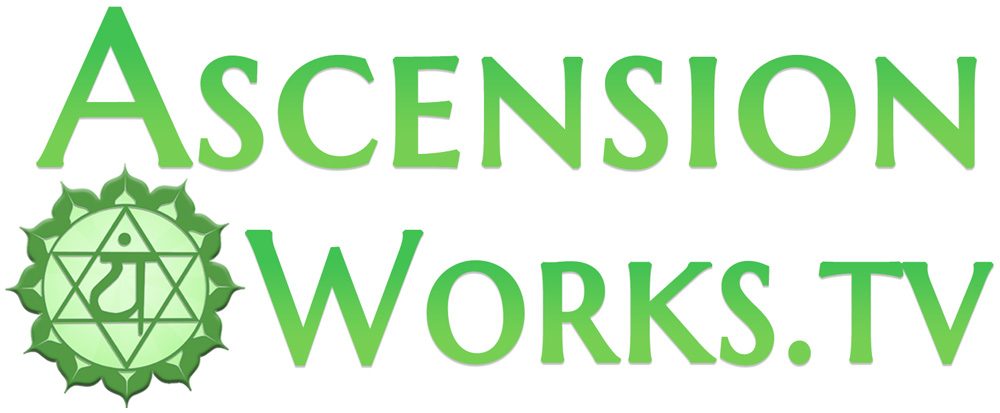



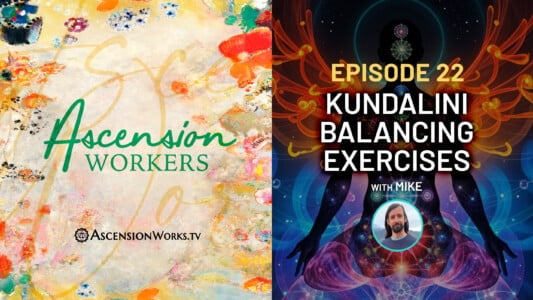
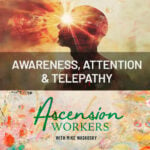
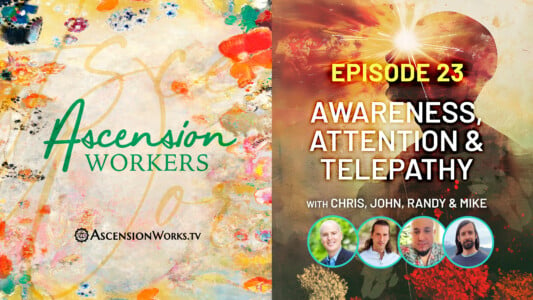
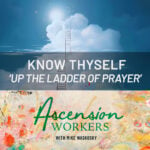
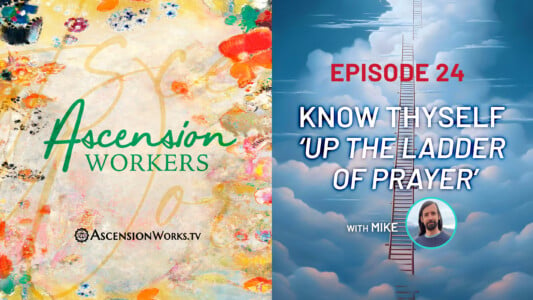

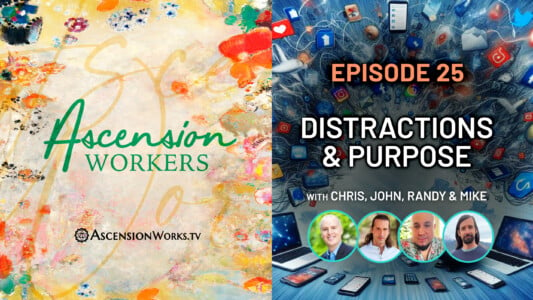
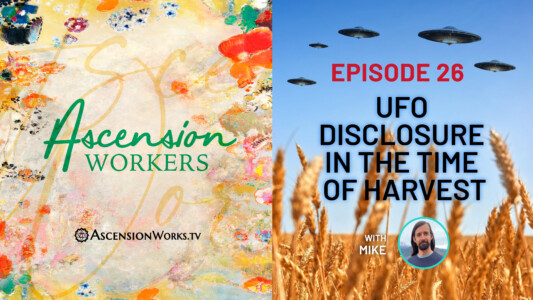
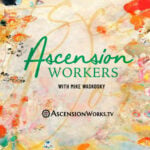

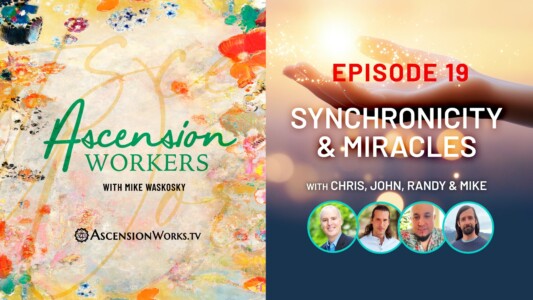


Thank you for sharing those thoughts with such eloquence. Your comments spoke to my heart in a way that allowed me to see the whole of our reality in a new light, and another puzzle piece fell into place. Your message brought tears of joy. I look forward to seeing your other posts. Thanks again!
Emotional reaction rather than measured responses has become more noticeable since the events of the pandemic starting in 2020. It feels that there is almost an intentional polarisation program running in the background. There is a real 3D/5D spilt occurring moving forward, We are collectively being challenged to move past past differences into spiritual maturity and being at one with all things.
Very enjoyable episode. Love the view point.
In old times people get killed just because they had different beliefs. I hope that situations never happen again. I hope for a place that everyone can understand each other even with different options. Thanks for sharing, peace and blessings to everyone 🙏
Many thanks☺️
OMGOSH So many thoughtful things to consider. I am going to need to listen to this again when I can fully focus. So much good information – fantastic!!